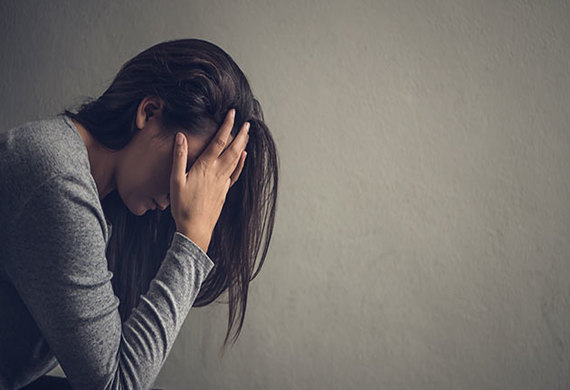
Gender Disparity Makes Women More Prone to Depression
By: WE Team | Wednesday, 4 November 2020
In today’s competitive world, women are more likely to be diagnosed with depression than men. The growing competence and women empowerment has in fact pushed women to an extent where they are affected by a severe anxiety disorder and major depression. Generally, a woman’s body has more hormonal fluctuation in comparison with men. Since puberty women tend to undergo a lot of hormonal changes and thus, it is quite essential for them to lead an active and stress-free life. But, the present corporate world demands women to be on par with men in addition to that women are burdened with domestic responsibilities which inflate their stress unimaginably.
Being a responsible wife, caring mother, as well as an efficient employee somewhere women, forget to attend to their body’s signal and continue to stress it resulting in anxiety and depression. Additionally, it is also noted that gender inequality also plays a vital role in disturbing women's mental health. According to a study conducted by Spain’s UPV/EHU’s research group OPIK, Social Determinants of Health and Demographic Change has revealed that women of all ages have mental health issues across all social groups, and gender inequality has a multiplier effect on them.
"All this could point to the existence of a medicalization process of mental health in women, but interpreting its origin is complex since the processes involving the high prevalence of diagnosis and over-prescription undoubtedly play a role, but maybe also due to infra-diagnosis and lower prescription rates in men," says Amaia Bacigalupe, one of the authors of the study. She further adds, "Even if there is no difference with men with respect to mental health equality, diagnoses, and frequency of visits to healthcare centers. There is a clear relationship between the degree of gender inequality in society and gender inequalities in mental health."(Source: Business Standard)
Mental disorder adds a significant burden of morbidity and disability. This gender inequality is sowed right from childhood causing inferior complex among girls at their tender age. Despite excelling boys at various levels such as academics, sports, arts and more the cultural myths have always held back women from living their life to the fullest. Although these are common, mental illness is underdiagnosed by doctors and only half of the patients are detected by the doctors. However, many patients tend to ignore the condition and do not seek professional help as they are reluctant. Thus, just two out of five women tend to seek medical assistance citing mood swings, and anxiety disorder.
The Depression rate is growing all over the world and it is anticipated to be the leading cause of disease burden by 2030. Furthermore, the existing leading cause in women worldwide between 1990 and 2010 in Canada, the major depressive disorder has been found to rise 75 percent in disability-adjusted life years. Thus, the mental disorder has evolved to be the second greatest increase in prevalence after Alzheimer's disease. Hence, comparing this the increase in the United States is approximated to 43 percent. On the other hand, the female: male ratio of global disability from major depression remained unchanged at 1.7:1.
Akanksha Pandey, Psychologist at Fortis Hospital, says, “With greater awareness, availability, and acceptance, a lot of young women in their 20s and 30s are seeking help against the stigma of the society. It has also been observed that the young educated working couples seek professional help more often than witnessed earlier.” He adds, "Among other reasons, women are also seeking professional help in order to have someone neutral and non-judgmental to hear them out.” (Source: DeccanChronicle)


.jpg)



